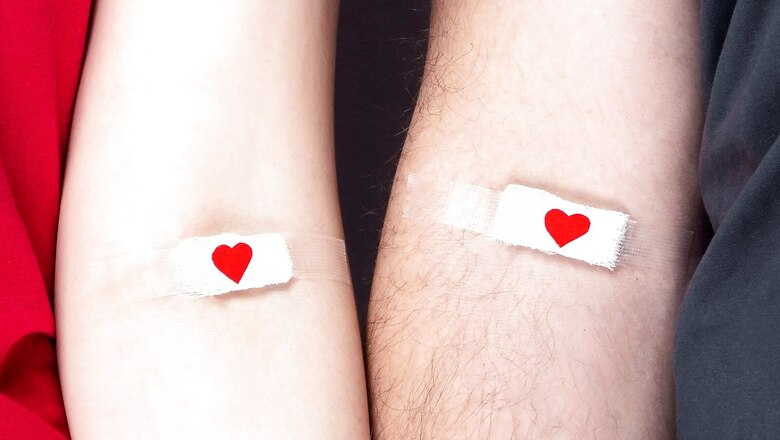
views
World Blood Donor Day is observed on June 14 to raise awareness about the importance of blood donation as the range of applications is far greater than most people realise. Donating blood has been a crucial cornerstone that has assisted the world several times, from plasma therapies to research and emergencies.
The day also serves as a call to action for governments and national health authorities to allocate sufficient resources to increase the collection of blood from unpaid volunteers and to manage access to blood and transfusions for those who require it. For this year, the World Blood Donor Day slogan is “Donating blood is an act of solidarity. Join the effort and save lives” to draw attention to the roles that voluntary blood donations play in saving lives and enhancing solidarity within communities.
Blood donation has always been integral to the functioning of the healthcare system but in a post-COVID world, its importance can be emphasised enough. According to WHO (World Health Organization), a country needs 1 per cent of its population in blood units, a criterion that India had not fulfilled even before the COVID 19 outbreak began.
Since the nationwide lockdown began in March 2020, there has been a sharp drop in the number of units of blood collected and the number of blood camps – despite an NBTC warning suggesting that donation services be continued with prudence. It does not take a lot to guess why the numbers have dropped. Much like with newly emerging infectious diseases of the past, people have been wary of visiting crowded hospitals or blood collection camps for fear of contracting COVID-19.
In spite of COVID19, blood is still needed in India to help people with thalassemia, anaemia, and blood cancers, among other conditions. Because postpartum haemorrhage is one of the most common preventable causes of maternal death, the blood shortage disproportionately affects women.
There is currently no indication that coronavirus or other respiratory viruses can be spread through blood transfusion anywhere in the world.
Also, one can donate convalescent plasma after recovering from COVID-19. Convalescent plasma treatment is when doctors collect plasma from previously infected COVID-19 patients and give it to current COVID-19 patients to help them fight the virus. A single person can benefit up to four COVID-19 patients by donating convalescent plasma.
Those who are eligible for blood donation should keep in mind the minimum duration period that they should wait for after their last vaccine dose. According to an order by National Blood Transfusion Council (NBTC), a person can’t donate blood 28 days post-vaccination after the last dose of COVID-19 vaccination. People who received Covaxin must wait at least 56 days before donating blood, and those who received Covishield must wait up to 70 days.
Read all the Latest News , Breaking News , watch Top Videos and Live TV here.













Comments
0 comment